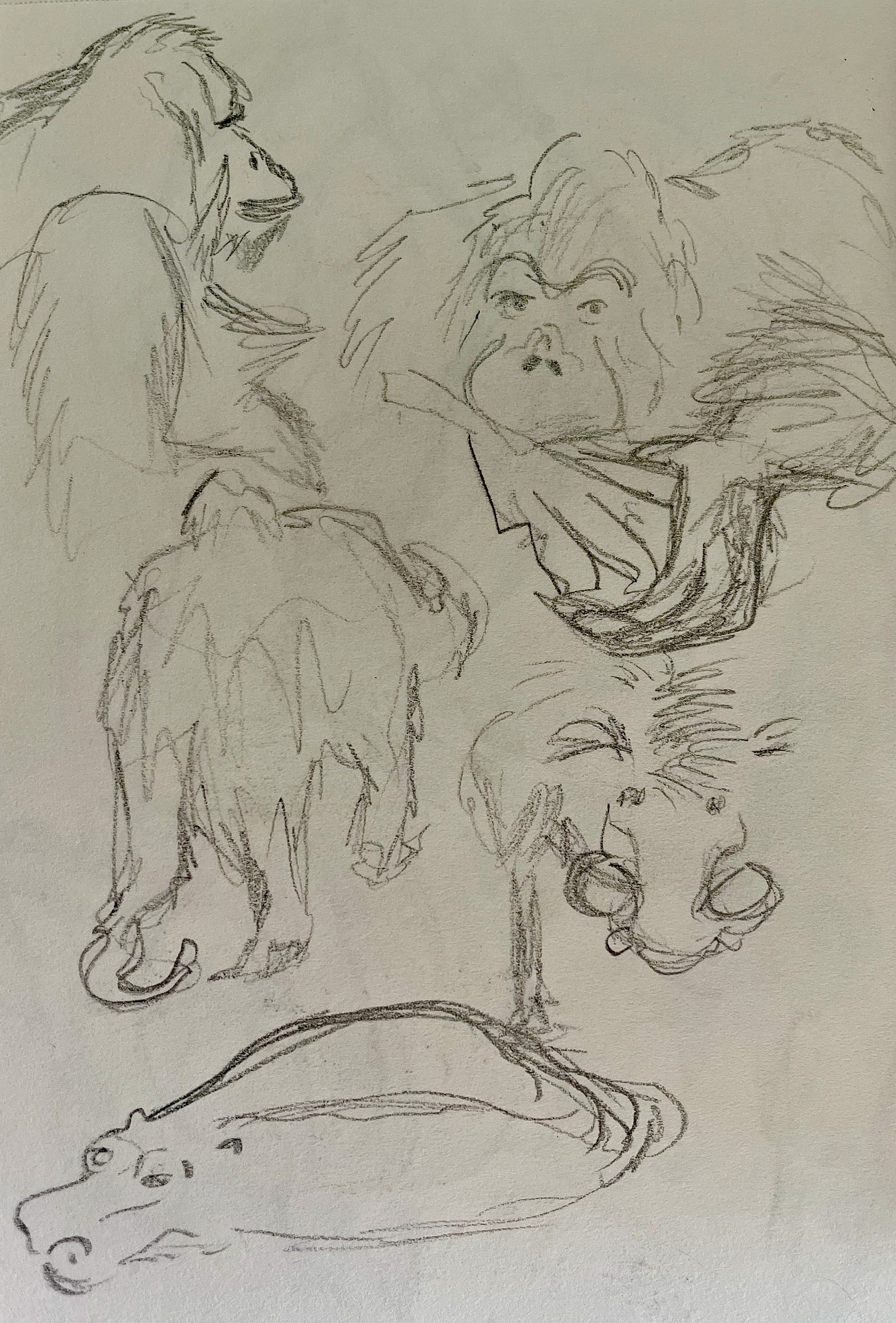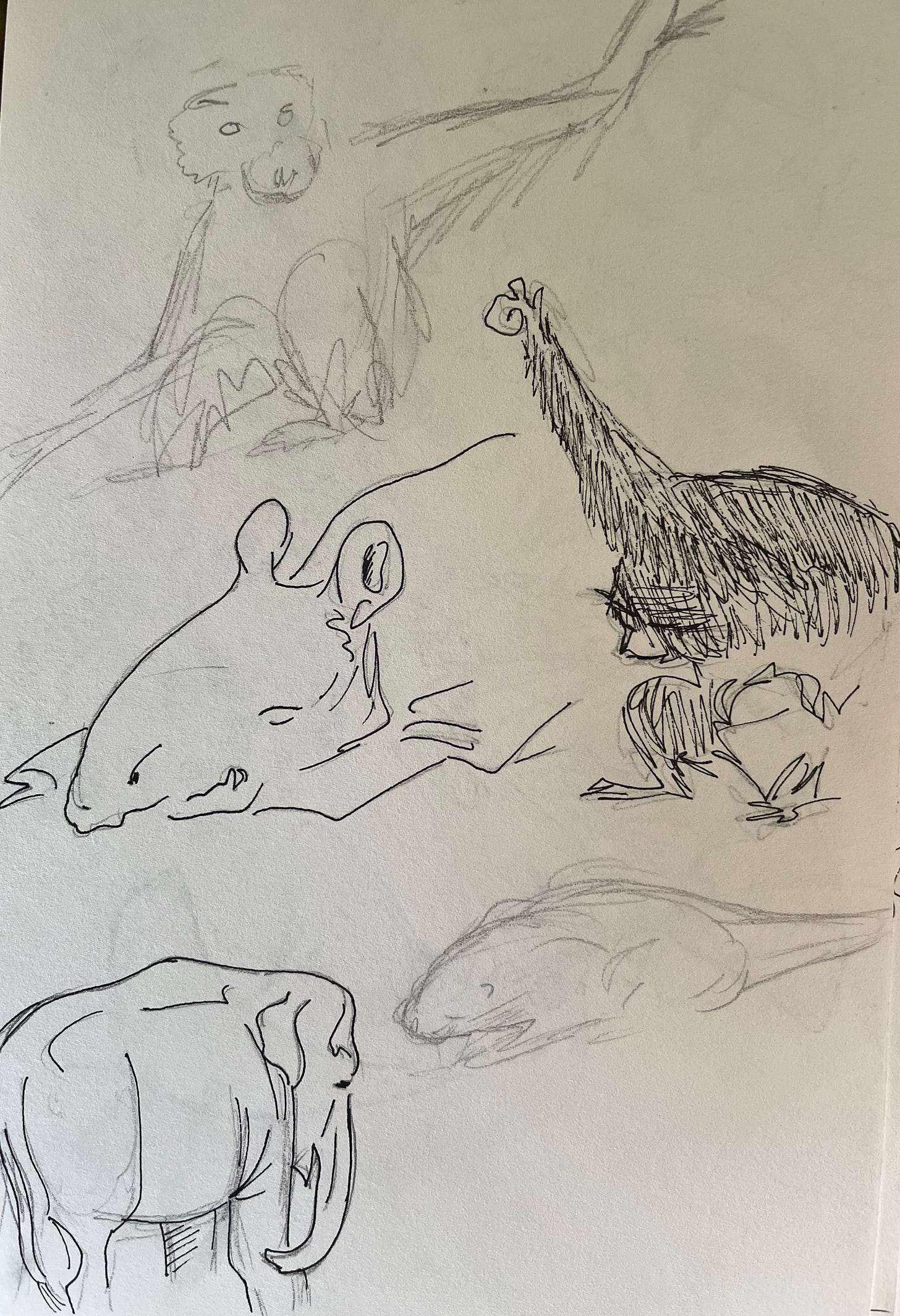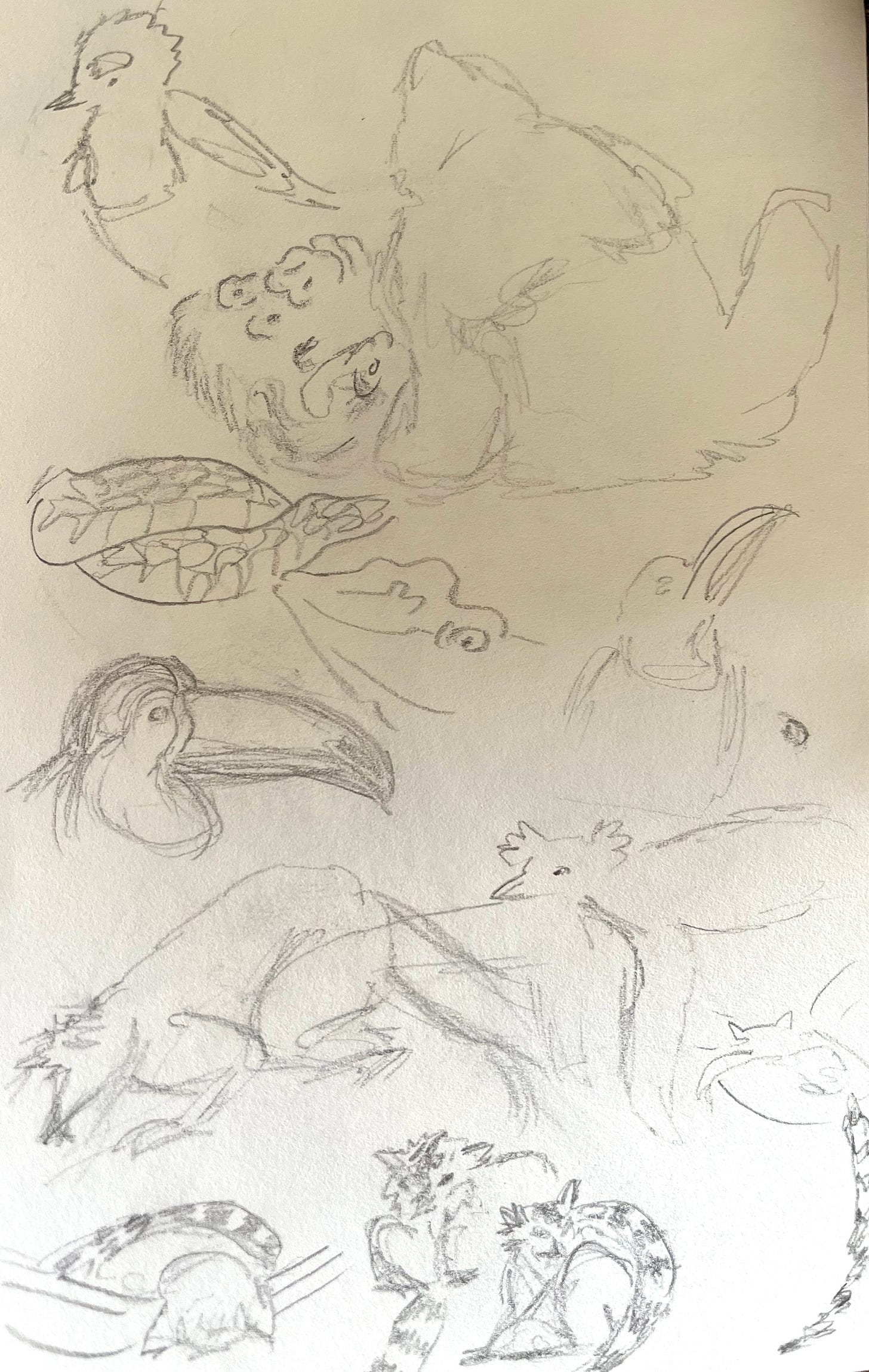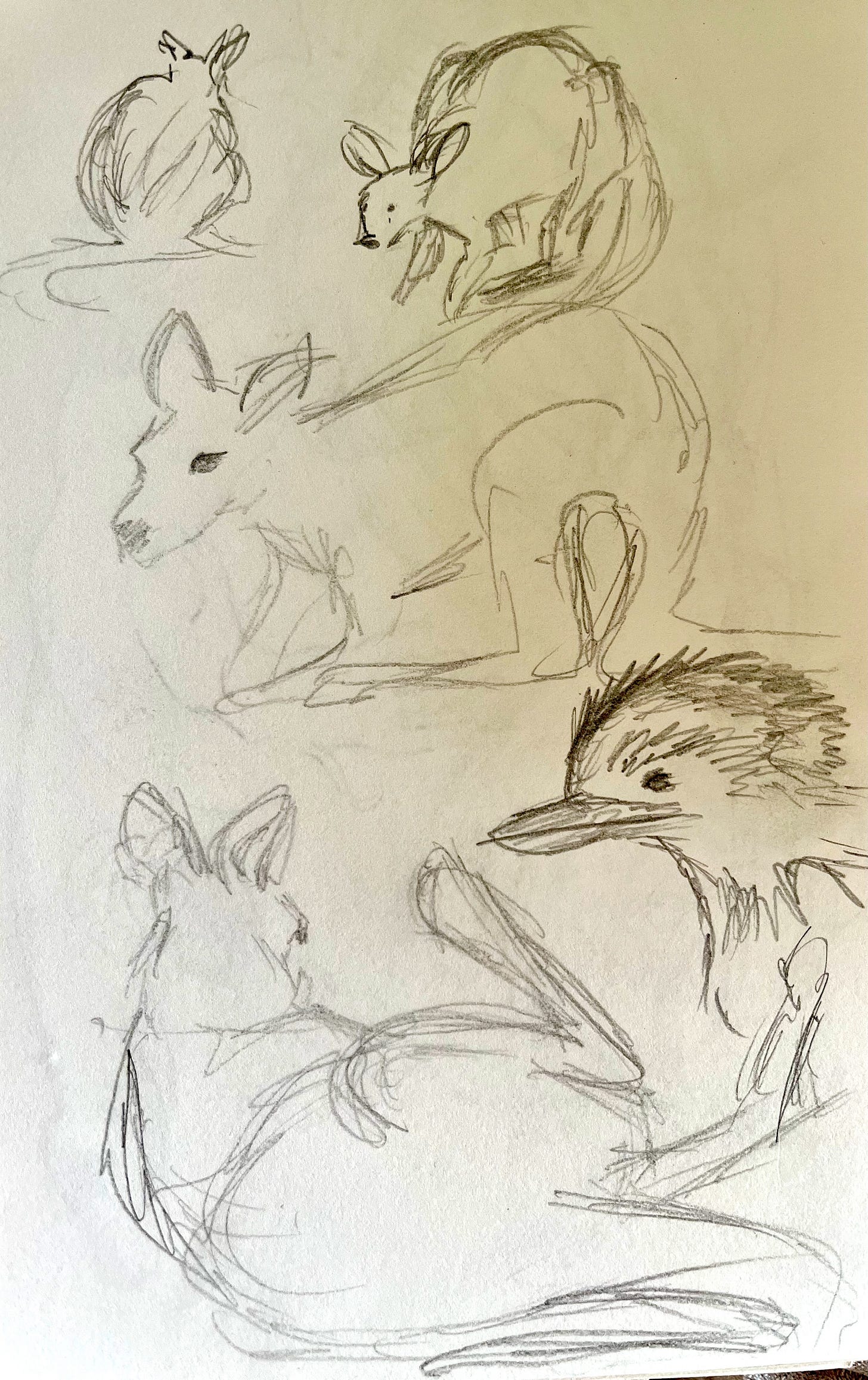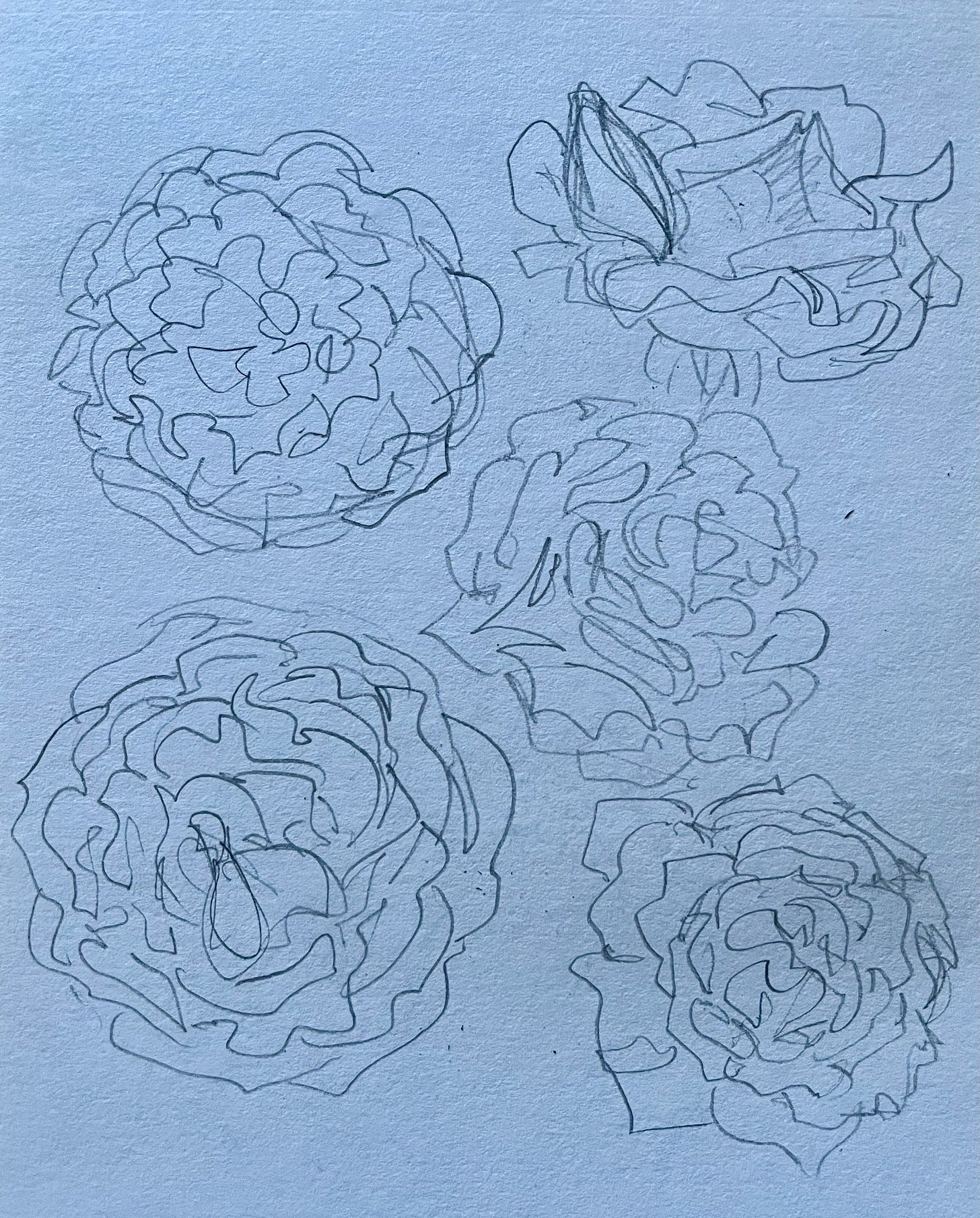It’s always the simplest things.
The things that make the difference between wanting to cancel all your plans and feeling capable of handling everything; the realizations that come in self-development, spiritual, or medicine work are always so basic, yet when you really feel them, they’re profoundly life-altering. Things like: Drink water. Sleep. Eat well.
Remember to breathe.
It’s our first participation in the cosmos and my first lesson in the jungle, and the center of most meditation practices: Breathe in, breathe out. Keep coming back. Your mind will wander; you can let it. Just remember that the breath is your center.
I always resist meditations and practices that revolve around the breath, yet it’s kind of the whole deal. I learned early in my medicine journey that the breath is the first rule of incarnation—and it’s a choice we have to keep making again and again. This knowledge has itself circled back around on multiple occasions, gaining a new layer of meaning each time, but today I finally understand.
Sometimes we have to choose to stay alive.
We do that through the breath. Which, as Alan Watts says, is both a thing we’re doing intentionally and that is happening to us. Everyone is in control and is master of the universe, and nobody is—because the universe is made of all of us. It’s just one big interconnected web, a fabric of interwoven threads, from which nothing, not even one molecule, could ever be separated.
Yet separation can be beautiful—like any medicine, it can be a tool or a weapon.
Sometimes we have to choose to be separate. That’s what staying alive is.
In fact, this whole dimension only exists because of separation. There is only a 3D reality, a world to experience, because there are boundaries between things; there are individual people, animals, plants, fungi, and trees; there are discrete objects and entities. There are unique energies, and we all embody a specific collection of molecules and particles and create our own frequency—yet it gains resonance when we come into contact with other energies and beings and entities that are similar to ours. This creates harmony and happiness, peace and balance, and it’s what everything in the Universe is always striving toward in its relentless quest to know itself through every possible configuration.
What matters is intention—are you choosing to be separate so that you can stay alive? So you can heal yourself and be equipped to help others do the same for themselves? Or are you separating yourself to have power over, to convince yourself that you’re superior to others? That’s the rub.
We are all driven by an urge to merge—and this is what dying is. It’s why there’s a fine line between pleasure and pain, and sex, death, and creation are different expressions of the same feeling.
The longing to return to something we feel we lost that drives so many of us is the spiritual quest. It’s expressed in many separate forms, but underneath it all, no matter how twisted it may get at times, is the same intention: the pursuit of pleasure, art and gastronomy, ritual and ceremony, the search for God, starting a family, lovers we think will redeem us, pursuing knowledge and training, working with gurus and teachers, even experiencing pain and inflicting it on others, it’s part of the same concept, the idea that it fucking hurts to be separate…
…but we kinda love it.
This is the game of existence: the tension between life and death, the drive to be seen and disappear completely; to drop these bodies and return to the mother, to let the lovers consume you, to feel the whole universe inside you and know that you are everything, and therefore nothing, that you're in control and nobody is; surrendering, releasing all striving and having to be something, all having to perform and feel pain and hunger, cold and suffering. But that also means releasing all the love and abundance, joy and happiness and bliss, ecstasy and sensation, beauty and peace and excitement.
The French word for “orgasm” translates to “little death” for a reason.
The paradox, the delicious trick, is that the moments we find most beautiful tend to be the ones where we lose ourselves—that embody this tension of opposites. Where we die just a little bit because the boundaries that seem to make us discrete begin to fade away; where we become a little bit one with everything, but retain our individual experiencing. The way this happens for humans is through the sensory—through the way things taste, touch, sound, smell, and feel. William Blake called the five senses “the chief inlets of soul in this age,” and to me, that pretty much sums up the whole thing. We experience oneness through sensory experience; we transcend the individual experience through its very mechanisms.
By being separate, we learn that we are not. And it’s not so much a learning as remembering that we always knew this—we just forgot. And being separate is a choice we make every day that we decide not to end it all, but to stay.
Our cultures in the Anglosphere and Europe put a lot of emphasis on transcending, whether or not it’s literally referred to as dying: religious traditions canonize martyrs; giving yourself to a person or a cause is held up as the ultimate contribution; self-sacrifice is idealized. What we don’t talk about is that we need boundaries to survive. We need to know where we end and others begin in order to be healthy, to give and take in proper proportion, to care for ourselves and our whole ecosystem. (Narcissism and codependence are two extremes of the same archetype: all boundaries, no compassion and vice versa. Neither one is inherently bad; we contain all the archetypes, and need a little bit of each of them.)
In my experience, mainstream narratives of spiritual and psychedelic work emphasize the “ego death.” They say you should always go towards it; that anything less than full surrender, dropping the body and becoming one with everything, is a failure. This can cause people to push themselves past their limits, or to misinterpret the messages they receive along the way. This certainly happened to me. I had the journey where I fully died, and it was transformative. But it was also deeply destabilizing and took a lot of integration and processing. For me, the journey that brought it all home was when the facilitator told me I wasn’t going to die today.
I felt it happening, and desperately grasped at her with outstretched hands, but instead of telling me to surrender, she balled up my fists and put my hands back on my chest, and told me: “Stay in your power.”
I finally understood the significance of this today when listening to a Ram Dass meditation on the breath. He said the really hard work is not dying, but living; realizing you don’t have to, but choosing to be here, holding all the suffering. Christ’s real sacrifice, he says, was not being crucified—it was choosing to come here in a body in the first place. Either way, you’re surrendering, it’s just a matter of which way you want to learn this time.
You do have to die at least once to make a fully informed decision about whether you want to go or stay. Luckily, life gives us lots of these opportunities, in ways both large and small, every day.
I am finally starting to understand the lesson that’s been slowly integrating ever since that first night in the jungle; hell, ever since I was a kid. Knowing we are all one, touching that oceanic boundlessness and bliss, but then opting for the route of separation and pain because you want to help others experience the same liberation—that’s what awakening is. It’s the Bodhisattva path and Buddha mind; Christ and Krishna Consciousness; the tradition of Hermes, the psychopomp who guides souls into the Underworld and back. It’s hard as fuck, and hurts like hell, but it’s the only way to experience all the love.
We have to help each other stay alive, so we can all remember—and finally go home, alone together.
If you are reading this right now, you’re already doing it. You made the choice today to stay alive, so you’ve already won. Make sure to hydrate, sleep, eat, move your body, connect with other living things, and touch something green. But even when you forget about these things, it’s okay. You’re still doing it. Just keep coming back.
The world is a better place because you’re in it. Thank you for being here, and thank you for being.
An announcement: For those who don’t know, I am starting a PhD program in Creative Research through the Transart Institute for Creative Research, in partnership with Liverpool John Moores University, this fall. My thesis is what I’ve already been doing: documenting and creating art, writing, ritual, and performance around the ways we connect, transcend, and heal through altered states. Especially psychedelics and plant medicine, but including food and drink; focused on queer and trans communities, but operating from a broad definition and encompassing everyone who feels outside the mainstream and those not in human bodies. The thesis is ethnography, participant observation, and creative acts; life is part of the practice.
I am also pursuing other, more direct forms of service, and am training and practicing in offering integration and preparation support to those doing journey work, whether with plants, practices, or your journal. If any of what I’ve said calls to you, reach out and let’s connect. I’ll continue to document the journey here and through various formats, including my website and (for now) Instagram.




